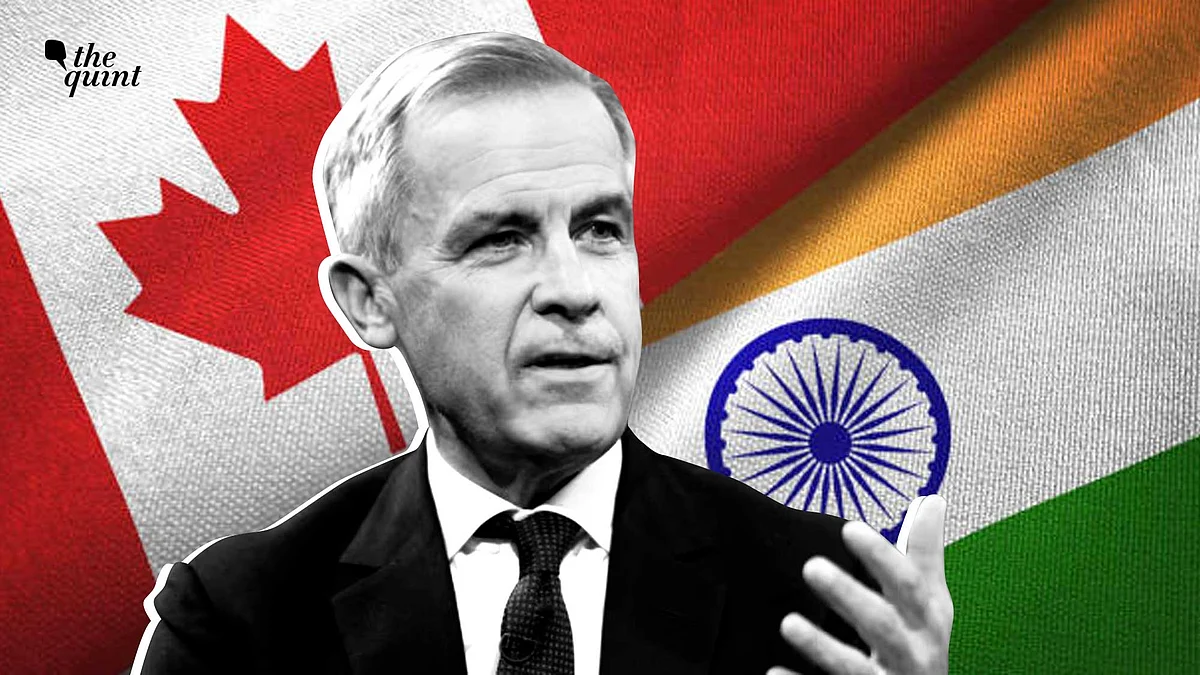
India-Canada Patch Up? New PM Mark Carney Can Help Bury the 'Khalistan' Hatchet
With Trudeau gone, India is on the lookout for Canadian overtures to restore bilateral ties, writes Sumit Ganguly.

advertisement
Following a landslide victory in the recently held federal elections in Canada, Liberal Party candidate and so-called 'political novice' Mark Carney has replaced Justin Trudeau as the country's new prime minister. Since the Carney is not currently a Member of Parliament (MP), he will soon have to call national elections to secure a parliamentary seat.
A former banking executive at Goldman Sachs, Carney first served as the Governor of the Bank of Canada before serving as the first non-Briton to serve as the Governor of the Bank of England.
Navigating Troubled Waters with US
Ahead of his re-election, Trump had argued on his campaign trail that Canada was not doing enough to stop the flow of a highly addictive synthetic drug, fentanyl, and was being lax on illegal immigration.
Former Prime Minister, Justin Trudeau, had tried to placate Trump but to little avail. He subsequently adopted a tougher stance toward the Trump administration’s policies. Carney, even before assuming office, has made it clear that he has no intentions of kowtowing to Trump and his vagaries.
Fixing Relations with India
Apart from dealing with his very mercurial counterpart in the United States, Carney has other challenges that he will soon have to confront.
The issue that has roiled relations has to do with the presence of a small but vocal group of Sikh separatists in Canada.
The friction has historical roots and can be traced to the apparent unwillingness or inability of successive Canadian governments to vigorously prosecute the perpetrators of the bombing of an Air India flight in 1985. 'Emperor Kanishka', the Air India airliner, was on a routine flight from Montreal to London. The blast resulted in the deaths of all 329 passengers and crew.
The more recent tensions in Indo-Canadian relations, as is now well known, stem from an alleged plot that led to the successful killing of a Sikh separatist, Hardeep Singh Nijjar, in Surrey, a suburb of Vancouver in British Columbia. PM Trudeau and members of his Cabinet had alleged that the officials within the Government of India had orchestrated this assassination.
The government in New Delhi vehemently denied these charges. Ottawa nevertheless expelled India’s High Commissioner, claiming he was complicit in this plot. In turn, New Delhi resorted to retaliatory expulsions, leading to a drastic downward spiral in bilateral ties.
News reports suggest that the Indian government is already considering restoring its High Commissioner to Canada, after Trudeau's exit. The Canadian Security Intelligence Service chief Daniel Roges is also scheduled to visit India next week for a meeting held by the National Security Council Secretariat. This will be the first such meeting after the heated war of words last October over the case.
Opportunity for Diplomatic Reconciliation
Will Carney now try to repair relations with New Delhi after he formally assumes office? Some remarks that he made while on the campaign trial suggests that he may be inclined to try and restore some comity to the relationship.
There are a number of possible reasons for wanting to ameliorate this much-frayed relationship.
Likewise, India (though to a far lesser degree) finds itself in the crosshairs of the Trump administration over the issue of tariffs and may welcome a thaw in the cold Indo-Canadian relations.
Additionally, Carney, a political moderate, may be less beholden to the more radical members of the Sikh community in Canada. As he assembles a new Cabinet, he may not include individuals accused of harbouring Khalistani sympathies by multiple Indian politicians.
New Delhi, especially under the present government, has highlighted its interest in pursuing a foreign policy based on multi-alignment rather than solely relying on traditional alliances. This approach suggests that New Delhi may be in a more receptive mood to any overtures to improve relations on Ottawa’s part. It will, without a doubt, watch for any tangible gestures that Carney makes toward India in the weeks and months ahead.
(Sumit Ganguly is a Senior Fellow and directs the Huntington Program on Strengthening US-India Relations at the Hoover Institution at Stanford University. This is an opinion piece. The views expressed above are the author’s own. The Quint neither endorses nor is responsible for them.)
- Access to all paywalled content on site
- Ad-free experience across The Quint
- Early previews of our Special Projects
Published: 11 Mar 2025,03:04 PM IST